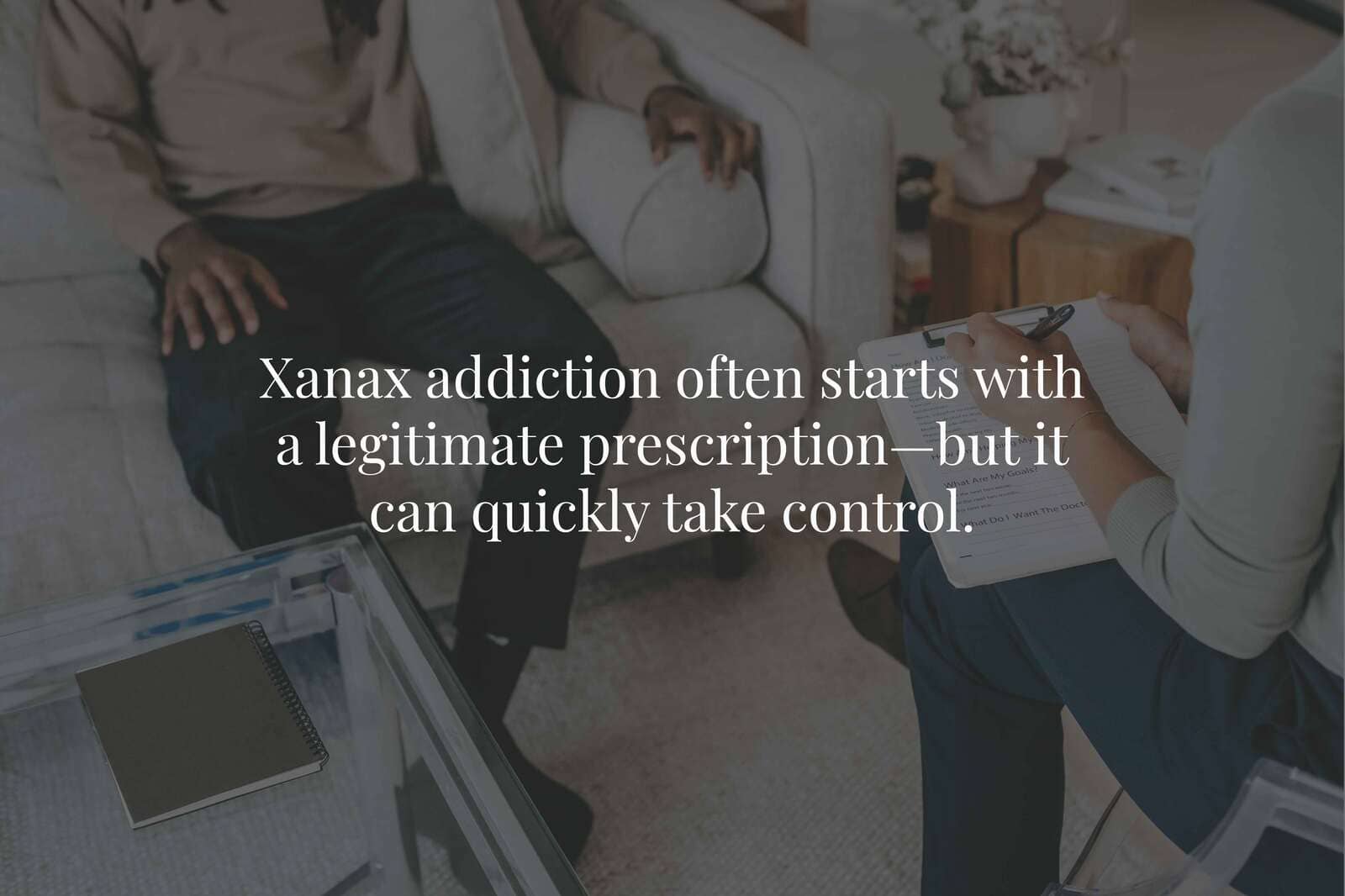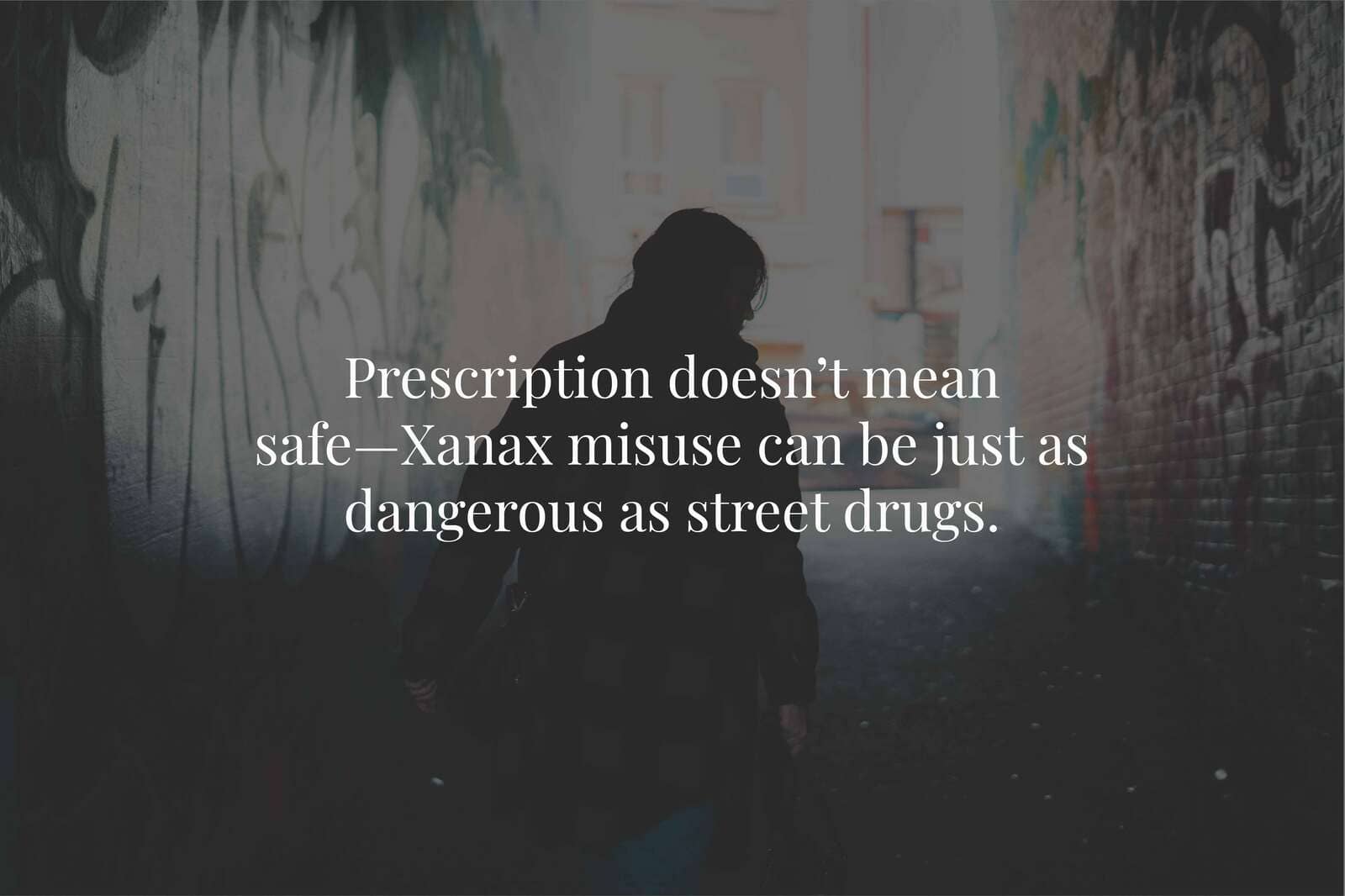What Is Xanax and Why Is It Addictive?
Xanax (alprazolam) is a prescription benzodiazepine used to treat anxiety and panic disorders. It works by calming the central nervous system, which can provide fast relief from overwhelming feelings of fear or stress. However, Xanax’s calming effects make it highly addictive. People who use it for extended periods—or misuse it by taking higher doses than prescribed—can quickly develop tolerance, dependence, and eventually addiction.

Signs and Symptoms of Xanax Addiction
Recognizing addiction early is key to preventing severe consequences. Common signs include:
- Taking higher doses than prescribed
- Intense cravings and preoccupation with the drug
- Mood swings, irritability, or memory problems
- Doctor shopping or obtaining pills illegally
- Neglecting responsibilities due to use
- Withdrawal symptoms when not taking the drug
These symptoms highlight the powerful grip Xanax can have, even on people who began using it with a legitimate prescription.

Risks and Dangers of Xanax Misuse
While many assume that prescription medications are “safer” than street drugs, Xanax misuse carries serious risks:
- Overdose potential: High doses of Xanax, especially when mixed with alcohol or opioids, can slow breathing to dangerous levels.
- Cognitive impairment: Long-term misuse often leads to memory problems, confusion, and reduced mental sharpness.
- Mental health issues: Anxiety and depression can worsen with prolonged misuse, creating a cycle of self-medication.
- Dependence: Even short-term use at high doses can trigger withdrawal symptoms when the drug is stopped.
The dangers are magnified when Xanax is obtained without medical supervision.

Treatment Options for Xanax Addiction
Recovering from Xanax addiction is possible with the right treatment approach. Options often include:
- Medical detox: Safely managing withdrawal symptoms under supervision.
- Medication-assisted treatment (MAT): Sometimes used to ease severe symptoms.
- Therapy and counseling: Cognitive behavioral therapy (CBT) is especially effective for addressing anxiety and addiction patterns.
- Inpatient or outpatient rehab: Structured environments provide support and reduce the chance of relapse.
- Support groups: Connecting with others who share similar struggles helps sustain long-term recovery.
Seeking professional help ensures a safer and more effective path to recovery than attempting to quit alone.
Frequently Asked Questions
Is Xanax more addictive than other anxiety medications?
Yes, benzodiazepines like Xanax are among the most addictive medications for anxiety, particularly when used long-term.
Can you die from a Xanax overdose?
Yes, especially when combined with alcohol, opioids, or other sedatives, Xanax overdose can be fatal.
How long does it take to get addicted to Xanax?
Dependence can develop within weeks of regular use, particularly at higher doses.
Related Topics in the Xanax Series
Xanax Overdose Symptoms: How to Respond Quickly
Overdose is a life-threatening risk of Xanax misuse. This article explains the critical signs to look for and what to do in an emergency.
Xanax Withdrawal Symptoms and Detox
Withdrawal from Xanax can be dangerous if not supervised by medical professionals. This article outlines the symptoms and safest ways to detox.
10 Signs of Xanax Abuse
Subtle signs of abuse can be easy to overlook. This article highlights warning signals to help identify misuse before it escalates to addiction.
Takeaway
Xanax addiction is a serious condition that often begins with legitimate medical use. Because of its addictive properties and risks, professional Xanax treatment is essential for recovery. With proper detox, therapy, and support, individuals can safely overcome Xanax addiction and rebuild healthier lives.



